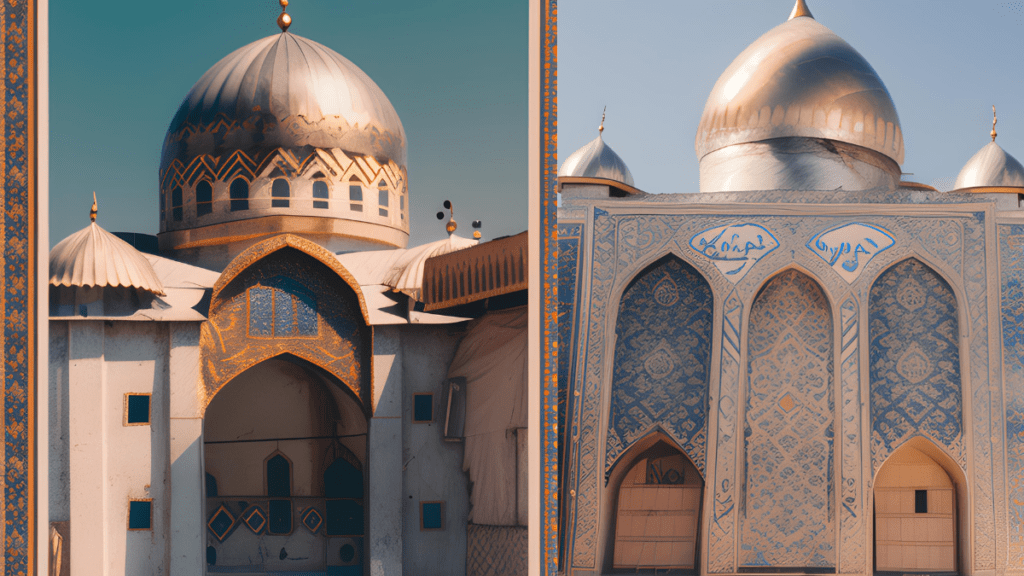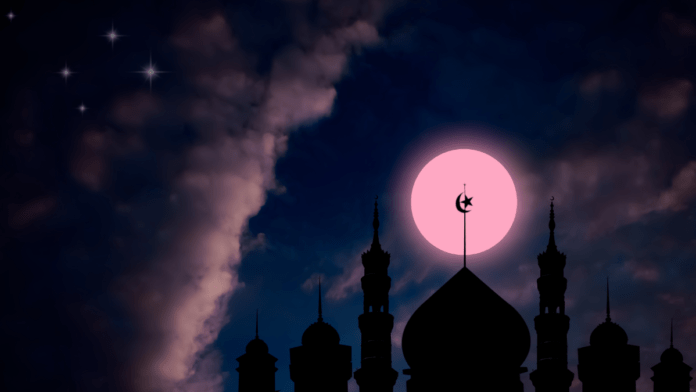Introduction
Muharram is the first month of the Islamic lunar calendar, and its significance extends beyond merely marking the passage of time. For Muslims worldwide, Muharram holds great importance as it is a time of reflection, mourning, and commemoration of historical events that have profoundly shaped the Islamic faith. In this article, we will delve into the reasons behind the observance of Muharram and explore the rituals and traditions associated with this sacred month.
Table of Contents
1. The Importance of Muharram
Muharram is one of the four sacred months in Islam, alongside Rajab, Dhul-Qi’dah, and Dhul-Hijjah. These months are considered significant due to their historical and spiritual value, and during Muharram, Muslims believe that the rewards for good deeds are multiplied. It is a time of increased devotion, fasting, and prayer, as believers strive to draw closer to their faith and seek blessings from the Almighty.
2. The Tragedy of Karbala
The most pivotal event associated with Muharram is the Battle of Karbala, which occurred in the year 680 CE. This heart-wrenching event took place in the scorching deserts of Karbala, located in present-day Iraq. It resulted in the martyrdom of Imam Hussain ibn Ali, the grandson of Prophet Muhammad, and his loyal companions. Imam Hussain’s stand against oppression and tyranny is an enduring symbol of sacrifice and resistance, making the Battle of Karbala a significant chapter in Islamic history.
3. Commemoration and Mourning
During the month of Muharram, Muslims around the world engage in acts of mourning and remembrance of the tragic events that unfolded in Karbala. These observances are not limited to a single day but extend throughout the month. The atmosphere is filled with grief as believers participate in processions, reenactments, and recitations of elegies that narrate the events leading to the martyrdom of Imam Hussain and his followers. These acts of commemoration aim to express their grief and solidarity with the noble sacrifices made by those in Karbala.
4. The Significance of Ashura
The 10th day of Muharram, known as Ashura, holds immense importance for Muslims. It was on this day that the Battle of Karbala reached its tragic climax, with Imam Hussain and his loyal supporters facing martyrdom. For Sunni Muslims, Ashura also carries additional significance as it marks the day when Prophet Moses and the Israelites were saved from Pharaoh’s tyranny. The convergence of these two events makes Ashura a day of profound historical and spiritual reflection.
5. Fasting on Ashura
Fasting on Ashura is an essential practice observed by Muslims. While it is not obligatory, it is highly recommended. The fast of Ashura is not only a way to commemorate the events of Karbala but also an opportunity for spiritual cleansing and self-reflection. Muslims fast from dawn to sunset on this day, seeking to attain a sense of empathy with the hardships endured by Imam Hussain and his companions in the face of injustice and cruelty.
5.1 The Niyat for Fasting on 9-10 Muharram
Fasting on the 9th and 10th of Muharram is a common practice among Muslims, and it holds immense significance. The niyat or intention for fasting should be made with sincerity and devotion. The niyat for fasting can be expressed in words like: “I intend to fast tomorrow (or today) for the sake of Allah, as an act of worship and in remembrance of the sacrifices made in Karbala.”

6. Acts of Charity and Kindness
Muharram is also a time for Muslims to engage in acts of charity and kindness. Throughout the month, believers are encouraged to provide food, assistance, and support to those in need, regardless of their faith or background. This emphasis on benevolence and generosity is a reflection of the compassion and mercy that Islam promotes as part of its core values.
Read More: The Rise of Remote Work: Navigating Flexibility in the New Era
7. The Diversity of Muharram Observance
It is essential to recognize that the observance of Muharram can vary among different Muslim communities and regions. While the core rituals and themes remain consistent, there may be cultural nuances in how Muharram is commemorated. Some communities may focus more on recitations and religious lectures, while others may emphasize processions and communal gatherings.
8. Spiritual Significance
Beyond its historical and commemorative aspects, Muharram holds profound spiritual significance for Muslims. It serves as a reminder of the values of sacrifice, righteousness, and justice, as exemplified by Imam Hussain. The events of Karbala continue to inspire believers to embrace these virtues and strive for moral excellence in their lives.
9. The Role of Poetry and Elegies
Poetry and elegies play a significant role in the commemoration of Muharram. These powerful expressions of grief and devotion connect Muslims emotionally to the events of Karbala. Through poetry, believers express their love for the family of the Prophet and pay tribute to their steady commitment to truth and justice.
10. Lessons from Karbala
The martyrdom of Imam Hussain and his loyal companions in Karbala holds profound lessons for Muslims and humanity as a whole. It stands as a timeless symbol of resistance against oppression and tyranny, inspiring people to stand up for justice, even in the face of overwhelming adversity. The lessons from Karbala encourage individuals to be steadfast in upholding their principles and promoting goodness and compassion in the world.

11. Muharram in Contemporary Times
Muharram continues to be observed with great zeal in the modern era. With the widespread diaspora of Muslims, the rituals and traditions associated with Muharram have reached various corners of the world. This global observance fosters a sense of unity and shared identity among Muslims, regardless of their geographical locations.
12. Respectful Interfaith Understanding
As Muharram gains attention beyond the Muslim community, it is essential for people of different faiths to approach this sacred month with respect and understanding. Respectful interfaith dialogues can foster harmony and promote mutual respect among diverse religious traditions. Such understanding allows individuals to appreciate the significance of Muharram and its impact on the lives of Muslims.
13. The Global Unity of Muharram
Muharram provides an opportunity for Muslims worldwide to come together in unity and solidarity. Regardless of cultural or ethnic backgrounds, the remembrance of Karbala unites Muslims under a shared history and purpose. This sense of global unity strengthens the bond of brotherhood and sisterhood among believers and encourages collaborative efforts in addressing the challenges faced by the Muslim community and humanity at large.
14. Contemporary Challenges and Responses
In today’s world, where conflicts and injustices persist, the message of Muharram remains relevant. It calls for standing against oppression, promoting peace, and advocating for social justice and human rights. The principles exemplified by Imam Hussain’s stance in Karbala encourage Muslims to actively engage in efforts to address contemporary challenges with compassion, wisdom, and determination.
Muharram: Wikipedia
15. Conclusion
In conclusion, Muharram is a sacred and profound month for Muslims that holds historical, spiritual, and moral significance. It serves as a time of remembrance, reflection, and renewal of faith. The commemoration of the tragedy of Karbala serves as a reminder of the values that Imam Hussain and his followers stood for, inspiring millions of
FAQs (Frequently Asked Questions)
Q1: Is fasting on Ashura mandatory?
No, fasting on Ashura is not mandatory, but it is highly recommended. It is a way for to remember the events of Karbala and engage in self-reflection.
Q2: How long does Muharram last?
Muharram lasts for 29 or 30 days, depending on the sighting of the moon, as it follows the Islamic lunar calendar.
Q3: Are the rituals of Muharram the same worldwide?
While the core rituals are similar, the way Muharram is observed can vary among different Muslim communities and regions.
Q4: Can non-Muslims participate in Muharram events?
Yes, non-Muslims are welcome to participate in Muharram events with respect and understanding for the religious significance of the occasion.
Q5: How does Muharram promote unity among Muslims?
Muharram unites Muslims worldwide under a shared history and purpose, fostering a sense of global unity and solidarity.







